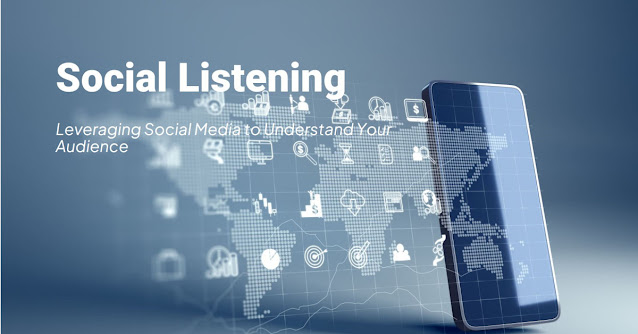Leveraging Social Listening for Brand Management
Introduction
In today’s hyper-connected world, brands are constantly under the public eye. Every mention, tweet, or review has the potential to shape public perception. This makes brand management more challenging and crucial than ever. Social listening, the practice of monitoring digital conversations to understand what customers are saying about a brand, plays a vital role in managing and enhancing brand reputation.
Understanding Social Listening
Definition
Social listening involves tracking mentions and discussions about your brand across various social media platforms and online forums. It goes beyond simple monitoring by analyzing these interactions to glean insights into public sentiment and emerging trends.
Importance for Brand Management
Effective brand management requires a keen understanding of how your brand is perceived. Social listening provides real-time insights into consumer opinions, enabling brands to respond swiftly and appropriately to both positive and negative feedback.
Steps to Implement Social Listening for Brand Management
1. Set Clear Objectives
Define what you aim to achieve with social listening. Whether it’s improving customer service, tracking brand sentiment, or identifying influencers, clear goals will guide your strategy.
2. Choose the Right Tools
Select social listening tools that align with your objectives. Tools like Brandwatch, Sprout Social, and Hootsuite offer comprehensive features for tracking and analyzing brand mentions.
3. Monitor Broadly
Track mentions of your brand, products, competitors, and industry keywords. This broad monitoring scope helps capture all relevant conversations and trends.
4. Analyze Sentiment
Understand the sentiment behind the mentions. Are customers happy with your product? Are there recurring complaints? Sentiment analysis helps identify areas for improvement.
5. Engage and Respond
Engage with your audience based on the insights gained. Respond to positive mentions to build relationships and address negative feedback promptly to mitigate potential damage.
Benefits of Social Listening for Brand Management
1. Real-Time Feedback
Social listening provides immediate feedback on how your brand is perceived. This real-time data allows you to act quickly to address issues or capitalize on positive sentiment.
2. Crisis Management
By monitoring social media, brands can detect potential crises early and respond proactively. This swift action can prevent negative situations from escalating.
3. Competitive Analysis
Social listening also involves tracking competitors. Understanding what consumers are saying about your competition can provide insights into their strengths and weaknesses, helping you refine your strategies.
4. Customer Insights
Listening to customer conversations reveals their needs, preferences, and pain points. These insights can guide product development, marketing strategies, and customer service improvements.
Case Studies: Successful Brand Management through Social Listening
1. Nike
Nike uses social listening to monitor conversations about their products and campaigns. By understanding customer sentiment, they tailor their marketing strategies and engage effectively with their audience.
2. Starbucks
Starbucks leverages social listening to enhance customer experience. They monitor feedback on new products and services, enabling them to make data-driven decisions and improve their offerings.
Conclusion
In an age where consumer voices are louder and more influential than ever, social listening is an indispensable tool for brand management. By understanding and responding to customer conversations, brands can build stronger relationships, enhance their reputation, and stay ahead of the competition. Embrace social listening to turn digital conversations into strategic advantages for your brand.
FAQs
1. How does social listening differ from social media monitoring?
Social media monitoring tracks metrics like mentions and engagement, while social listening delves deeper into the sentiment and context behind these conversations to provide actionable insights.
2. Can social listening help in crisis management?
Yes, social listening can detect potential crises early, allowing brands to respond proactively and mitigate negative impacts.
3. What tools are best for social listening?
Some popular tools include Brandwatch, Sprout Social, and Hootsuite, which offer comprehensive features for tracking and analyzing brand mentions.
4. How can social listening improve customer experience?
By understanding customer needs and preferences through their conversations, brands can tailor their products and services to better meet customer expectations.
5. Is social listening beneficial for small businesses?
Absolutely! Social listening helps small businesses understand their audience, improve customer engagement, and stay competitive in their industry.

